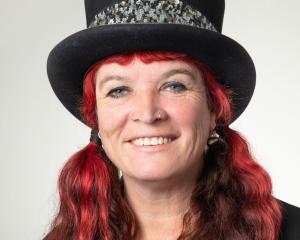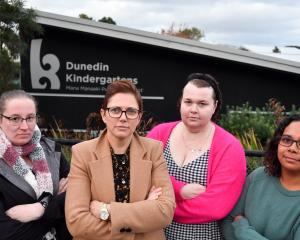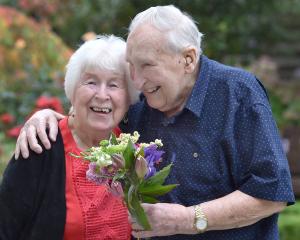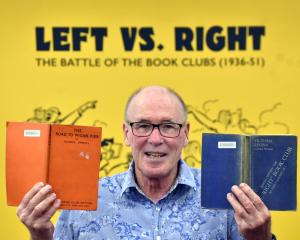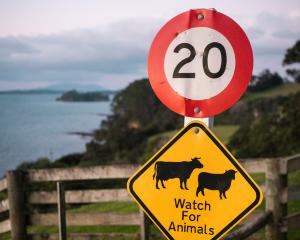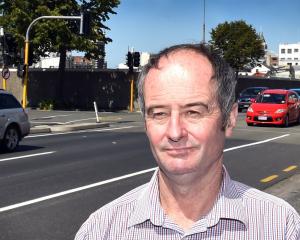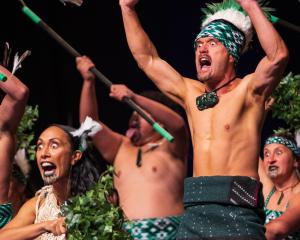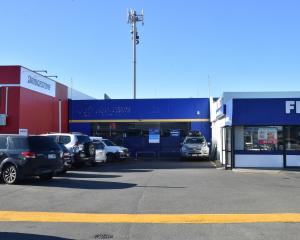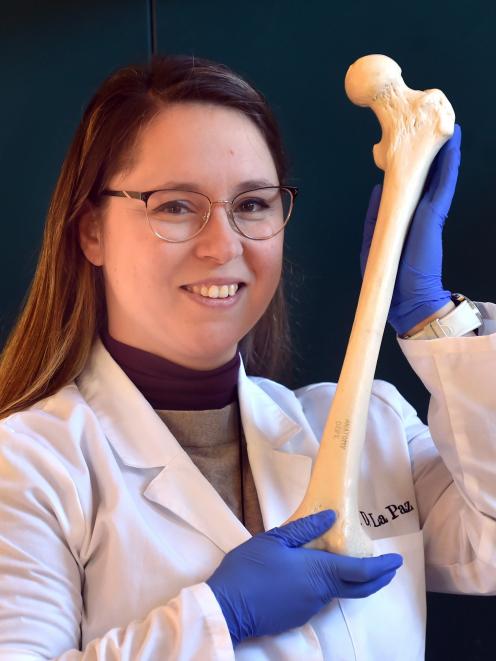
Fortunately, most of them are not real.
They are home-made whodunnit scenarios, created by anatomy professional practice fellow and forensic anthropologist Dr Jade De La Paz, and require her forensic science students to gather and test finger prints, fibres, fake blood samples, powdered substances and even boot prints, in a bid to solve the crime.
Her teaching style is one of the things that caught the attention of the American Academy of Forensic Sciences (AAFS), which recently made her a fellow in recognition of her contributions to both AAFS and forensic anthropology.
Dr De La Paz is one of only four New Zealanders to be given the prestigious membership, and is the only anthropology section fellow in the country.
"It feels great — like my contributions to forensic science and all the work I’ve been doing is being recognised."
Her career experience spans nearly 15 years, covering a fascinating mix of teaching and research, as well as coroner and police casework in the lab and in the field.
She has worked at the Smithsonian National Museum of Natural History; the United States Department of Defense POW/MIA Accounting Agency where she identified skeletal remains of American service members killed in World War 2, the Korean War and Vietnam; and has worked at several medical examiner’s offices across the United States.
With her wealth of experience, she moved to New Zealand in 2018 to complete her PhD at the University of Otago, and she now teaches the next generation of forensic scientists in what is the country’s only undergraduate forensic science programme.
"It’s definitely less exciting than what you see on CSI [Crime Scene Investigation] on TV — less sensationalised.
"It’s about making sure you treat the evidence really well. There’re very strict protocols or steps that you need to follow. There’s paperwork for every step of the process, and you work together as a team.
"It’s very, very focused on attention to detail."
She is also a member of the Australian and New Zealand Forensic Science Society executive committee and the AAFS standards board anthropology consensus body, where she is helping develop and publish new international standards for forensic anthropology.
In between times, she consults on forensic anthropology casework for forensic pathologists, coroners and the New Zealand Police.
She said the line of work was rewarding, but it was difficult to mentally process what could at times be pretty gruesome crime scenes.
"I approach it as, every single case, everything I do, is so important to the victim.
"Their loved ones and the community in general need to know what happened — they need closure — and it might help prevent the same thing happening in the future.
"I take comfort in knowing that what I’m doing is for the good of everyone."


